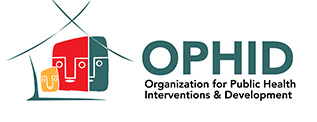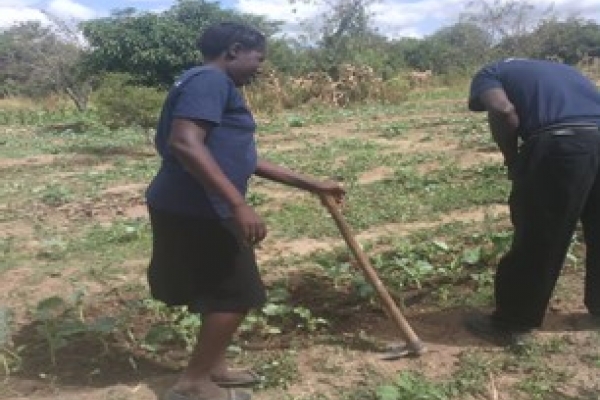SISONKE - WE ARE TOGETHER IN THIS: MORE THAN COMMUNITY ART REFILL GROUP
COMMUNITY OUTREACH AGENTS FORMING LIFE-SUPPORT GROUPS
Community ART refill groups (CARGS) are a differentiated service delivery (DSD) model
to bring treatment closer to the community. One member collects ART on behalf of the group, reducing the number of visits to the health facility to collect medicines. The model facilitates retention in care for people living with HIV (PLHIV). CARGS have become a platform for PLHIV to receive social support, obtain peer encouragement to adhere to treatment, and share ideas.
With support from PEPFAR through USAID Zimbabwe, OPHID implements the Target, Accelerate and Sustain Quality Care (TASQC) for HIV epidemic control program in 15 districts of Zimbabwe. The program uses DSD models to provide antiretroviral therapy (ART) to PLHIV. The TASQC programs engages volunteer community health workers known as community outreach agents (COAs). The COAs support PLHIV to form CARGS.
Mzimuni Rural Clinic in Gwanda District, in Matabeleland South province supported by the TASQC program, serves more than 6 thousand people. Sindiso Ncube, a COA supported the formation of 9 CARGS in Mhlangeni, which falls under Mzimuni Rural Clinic’s catchment area.
In October 2021, 7 of the CARGs formed a group called Sisonke Society. The name is derived from the Ndebele language and means togetherness. The group operates with the motto “Being HIV positive is not a hindrance to togetherness, empowerment, and future planning”. It has 54 members and developed a constitution to define the operations of the group. The society has a committee whose members consist of one member from each CARG.
Sisonke holds monthly meetings with each member paying a monthly subscription of 10 Rands to the treasurer. By January 2022, they had raised 1200 Rands. The money is kept cushioning against the uncertainties and misfortunes of life such as illness or death. If a member falls ill and requires money to pay for medical bills, they get R350 from Sisonke. In the event of bereavement of an immediate family member of a Sisonke member, each of the 7 CARGs gives 100 Rands to the family. The society provides pots, cooking services and attends the funeral to comfort their member. As a result, other members of the community have expressed interest in joining the society.
Through Sisonke, members receive supportive peer counselling. Group members teach each other on the importance of taking care of their health, adherence to medication and eating a balanced diet. The group also aids members needing help with chores.
“The members provide assistance to ill or vulnerable group members such as the elderly when they face challenges such as fetching water and other chores.” -Sindiso, COA
A nutrition garden was started using some of the funds to help members facing hunger. The Sisonke society plans to start projects such as rearing poultry to generate income and to supplement their diet. By moving beyond ART refill, Sisonke Society has fostered relationships between members and moving towards economic empowerment of the members.
“One member from one of the groups faced problems including domestic violence and hunger. So, they decided to educate each other on such issues within the groups. To deal with the hunger issue, the group resorted to developing a nutrition garden.” -Sindiso, COA
During the 1st quarter for year 2022, the TASQC consortium reconfigured its interventions in line with guidance and the focus for Year 2 of the program. COAs and Mentor Mothers were capacitated on DSD models with special focus on CARGs in rural sites. 12 841 clients were enrolled into available DSD models, this represents 54% of the target for the quarter.
[1]
Differentiated services delivery model is an approach where services are tailored to or centered on the needs of an individual or a group of individuals for example HIV testing services for priority populations, provision of
ARVs at community level for stable patients and having a one stop care point for TB/HIV co-infected
patients


